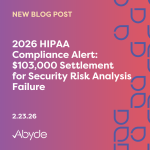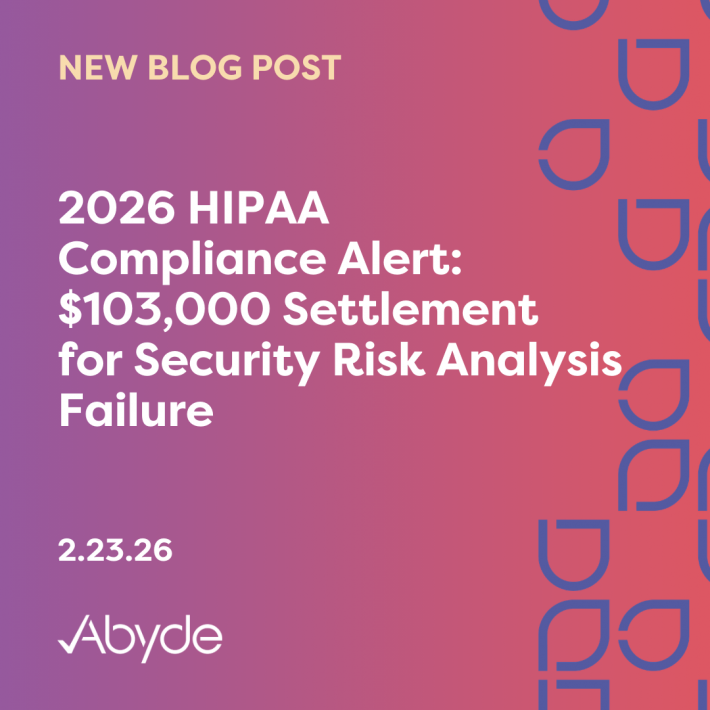April 10, 2020
HIPAA has been around for quite a while – since 1996, in fact – and part of HIPAA law has always included required safeguards to secure all aspects of a medical practice’s protected information. With the rapid adoption of technology within the healthcare industry, technical safeguards included in HIPAA law are some of the most important for practices of all sizes to implement. Technology has enabled businesses in the healthcare industry to move operations offsite. In light of the current public health emergency, allowing for access to all essential data without having to step foot into the office is vital to ensuring practices are ready to see patients after the social distancing rules are relaxed. While these advancements simplify and enhance your business operations, they have made a hacker’s job that much easier as well.
Technical safeguards are the documented strategies and solutions that practices implement to secure electronic protected health information and control access to it. These include:
- The policies and procedures allowing for only authorized access to PHI
- Implementing any special hardware or software to protect PHI
- The ability to trace system activity to a specific user accessing PHI
- Policies and procedures to ensure that PHI will not be altered or disposed of improperly
When it comes to the question of which data actually needs to be safeguarded, the answer is pretty much all of it. Any data that is accessed by, sent to or received from other practices or authorized vendors need to be protected as well as any data that has traceable identification that can be linked to a patient. This sensitive data must be encrypted prior to sending or receiving. Encrypting data may seem like a daunting task, but at a basic level, it just means making PHI unreadable to anyone other than the intended parties.
Recent Cyber Threats Tied to COVID-19
While ensuring your practice is prepared for a cyber attack is always important, cyber threats have been headlining the news a lot lately along with the current COVID-19 health emergency. Hackers are taking advantage of this time of increased public vulnerability as well as increased use of technology from unsecured networks while many people are working from home. Read up on common tactics utilized in these threats in our recent article.
Over the past few weeks, including just yesterday, multiple government agencies have issued warnings regarding recent threats to cybersecurity. These attacks range from individuals posing as government officials seeking access to PHI to other various phishing and malware distribution schemes utilizing the current concern and fear around COVID-19 as hackers ticket into your sensitive data. Further guidance can be found in the public service announcement released by the FBI and yesterday’s bulletin from the CISA.
Hackers aren’t just attempting to play the roles of OCR investigators, or focusing on sending you phishing emails – now your video-teleconferences are at risk too. Video chat apps have become increasingly popular whether it’s for telehealth appointments, office meetings, , or even just virtual happy hours with friends – it’s the best way to stay connected during this time of social distancing. Unfortunately, this added reliance on technology is just another way for scammers to attack. The FBI released additional guidance on defending against Video-teleconferencing (VTC) hijacking and “Zoom-bombing” which refers to attacks directly on the increasingly popular Zoom platform. Some noteworthy tips from this guidance include making sure your virtual meetings are private by requiring a password to gain access. Keeping these meetings private means keeping them off social media or other public-facing platforms so only provide meeting links directly to the individuals you want to be included.
These attacks on video chatting software are especially important for medical practices to be aware of as just a few weeks ago the OCR updated their telehealth service regulations allowing doctors to use various communication apps to diagnose and treat patients while maintaining a safe distance.
Practicing Good Cyber Hygiene
When it comes to cybersecurity, it’s important to know what to look out for, how to report any potential threats, and most importantly how to keep your practice and your patient data safe. Just yesterday, CISA, the United States Department of Homeland Security (DHS), and the United Kingdom National Cyber Security Centre (NCSC) issued a joint release featuring additional guidance on how to spot potential threats. Important tips for safeguarding your practice’s security during this time of increased risk include:
- Make it harder for attackers to gain access to your users.
- Know how to identify and report any suspected threats.
- Protect your organization from the effects of undetected scams
- Respond quickly and effectively to any incidents that do occur
There’s a lot of good ‘cyber hygiene’ out there, but here are a few top tips to keep your practice operations clean:
- Secure systems that enable remote access
- Ensure that employees have updated all anti-malware and antivirus software on their devices
- Encrypt any emails that include PHI or any other personal or financial information
- Properly dispose of any PHI both electronic and paper when working off-site
- Remind employees of appropriate access to PHI and implement controls such as applying additional protections for COVID-19 health records
- Ensure that PHI is only accessed when necessary, especially on less secure wireless networks such as those used when working from home
If you have questions about technical safeguard requirements, Abyde has a team of HIPAA compliance experts ready and willing to help navigate your practice through these recent changes. If your practice is interested in learning more, sign up for one of our complimentary HIPAA compliance webinars where we’ll discuss HIPAA & COVID-19 from the comfort of your current remote work location.





